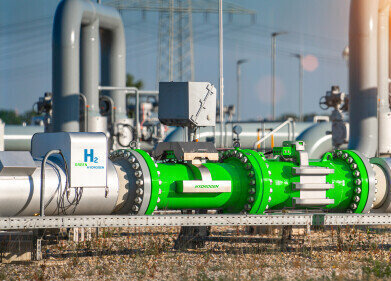Sustainable aviation fuel (SAF)
Introducing the Next Producer of Diesel Biofuel - E. Coli Bacteria
Oct 04 2014
Scientists at the University of Exeter have developed a new biofuel using a genetically modified strain of Escherichia coli bacteria.
The bacteria, more commonly known as E. coli, live in the intestines of healthy humans and animals. Most varieties of E. coli are harmless, but some strains can cause severe food poisoning. E. coli, a prevalent and diverse bacterium, it actually an ideal for biofuel production according to recent studies.
Why E. Coli?
At present, the majority of biofuels are produced from crops such as palm oil and rapeseed. However, these fuels are not yet fully compatible with modern engines. To make them safe for use they must be added in small amounts to petroleum.
The ultimate goal of biofuel production is independence from conventional petrol and diesel - to limit our reliance on fossil fuels and decrease CO2 emissions. Unless engines are redesigned or an alternative fuel is produced, this is unlikely to happen.
Well, it seems that that substitute fuel has finally been produced by researchers at the University of Exeter. The E. coli based fuel is chemically and structurally identical to commercial diesels. It is therefore perfectly suitable for use in all modern engines and is a genuinely viable alternative to fossil fuels.
The University of Exeter’s Professor John Love said: "Rather than making a replacement fuel like some biofuels, we have made a substitute fossil fuel. The idea is that car manufacturers, consumers and fuel retailers wouldn't even notice the difference - it would just become another part of the fuel production chain."
The Production Process
In order to create this “bio-fossil-fuel”, Professor Love and his colleagues genetically modified a strain of E. coli bacteria. The DNA of E. coli was spliced with genes from the Camphor tree, blue-green algae and soil bacteria.
The modified E. coli was then fed glucose – from natural plant sources – which it converted into synthetic fuel molecules.
The University of Exeter provided further explanation: "E. coli bacteria naturally turn sugars into fat to build their cell membranes. Synthetic fuel oil molecules can be created by harnessing this natural oil production process.”
Great, When Can I Fill Up?
Many people are already excited about the possibility of a biologically produced fossil fuel. But it could be many years before it is even close to being made available.
This is because E. coli only produces miniscule amounts of fuel; it takes approximately 100 litres of bacteria to produce a single teaspoon of biofuel. The next job for Professor Love and his team is finding a sustainable way to increase the yield.
The scientists will spend the next 3-5 years on this challenge. They hope success will allow them to produce the fuel on an industrial scale, but only time will tell.
Currently, US aircraft manufacturer Boeing is attempting to get approval to use green diesel as a fuel source for its planes. The company is working with stakeholders and the US Federal Aviation Administration (FAA) to fly on low-emission diesel in a bid to reduce aviation air pollution. Perhaps one day they will be using E. coli based diesel.
Digital Edition
PIN 26.1 Feb/Mar 2025
March 2025
Analytical Instrumentation - Elemental Analysis for Quality and Process Control at Refineries, for Lubricants and Wear Metals in Engine Oils - Synthetic Lubricants: New Developments - Scaling...
View all digital editions
Events
Apr 08 2025 Birmingham, UK
Apr 08 2025 Kielce, Poland
Apr 08 2025 Ravenna, Italy
Apr 08 2025 Southampton, UK
Apr 08 2025 London, UK
.jpg)


















